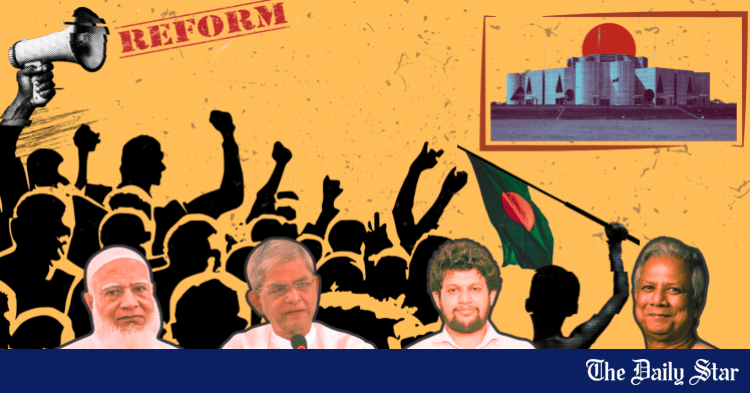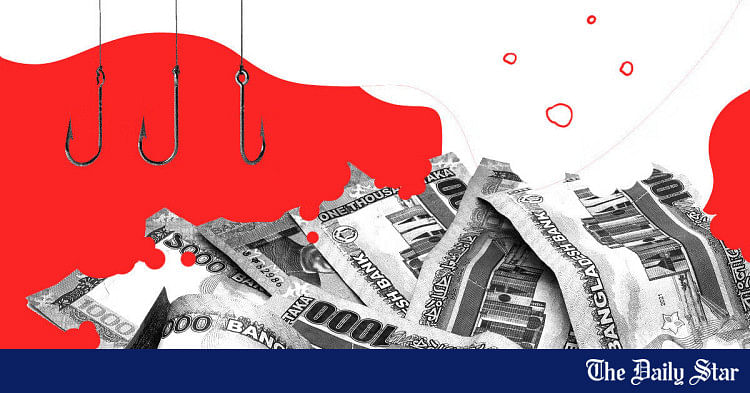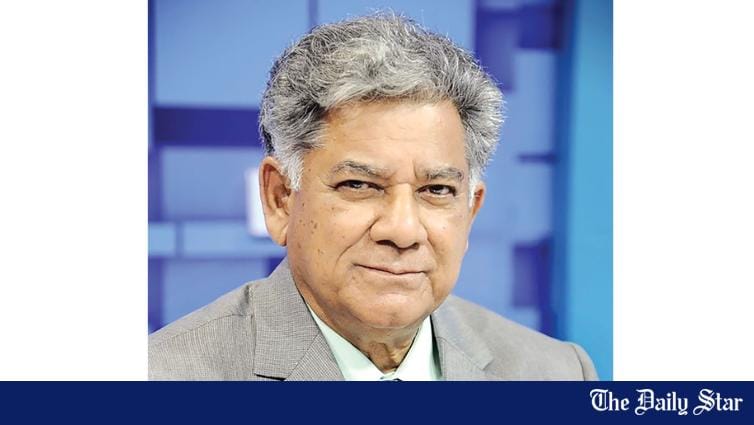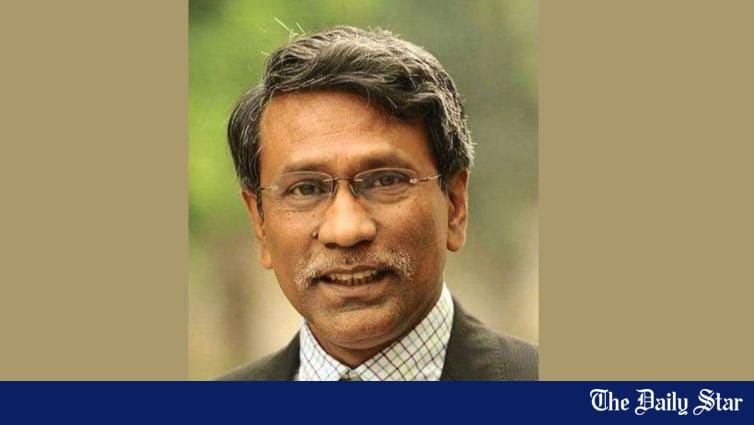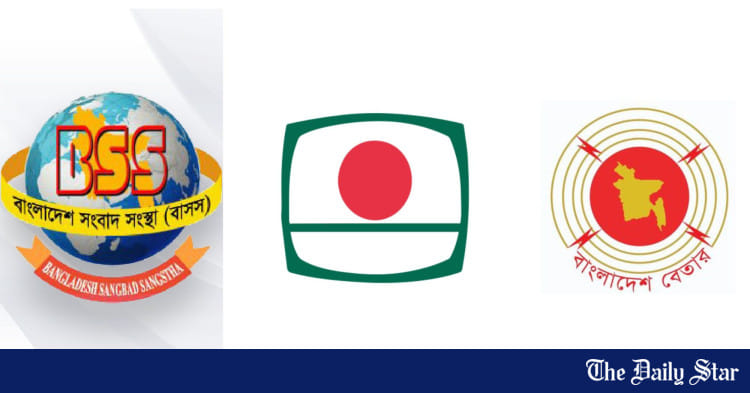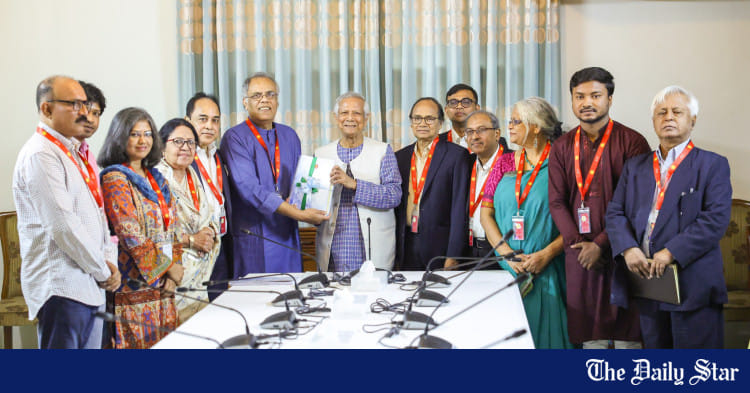Saif
Senior Member
- Joined
- Jan 24, 2024
- Messages
- 15,397
- Reaction score
- 7,874
- Nation

- Residence

- Axis Group


Electoral reforms: Commission proposes referendum and representative recall system
The Electoral Reform Commission has proposed introducing a referendum system to gauge public opinion on critical state decisions and a recall system to remove elected representatives from the National Parliament. These recommendations are included in the commission’s full report alongside ot
Electoral reforms: Commission proposes referendum and representative recall system
bdnews24.com
Published :
Feb 08, 2025 23:37
Updated :
Feb 08, 2025 23:37

The Electoral Reform Commission has proposed introducing a referendum system to gauge public opinion on critical state decisions and a recall system to remove elected representatives from the National Parliament.
These recommendations are included in the commission’s full report alongside other electoral reform proposals. The report suggests that the referendum provision be introduced in the next parliament and the recall mechanism for MPs be implemented in national elections.
On Saturday, the full report was published on the Cabinet Division’s website. Earlier, on Jan 15, the commission submitted the report to Chief Advisor Muhammad Yunus, and a summary was shared with journalists.
KEY RECOMMENDATIONS:
• Abolishing EVMs - Electronic Voting Machines
• Cancelling uncontested elections
• Reintroducing the "No Vote" option in general elections
• Invalidating elections where "No Vote" receives the majority
• Re-election if voter turnout is below 40 per cent]
• Limiting the prime minister’s tenure to two terms through constitutional amendments
• Reinstating the caretaker government system
• Introducing online voting
The latest additions to these recommendations include referendums and MP recall mechanisms.
REFERENDUM: A TOOL FOR PUBLIC OPINION
The report defines a referendum as a method to directly seek public opinion on crucial state decisions, a practice adopted by many countries. Referendums have been held worldwide on matters like constitutional amendments, major legislation, and international treaties.
Bangladesh previously held referendums in 1977, 1985, and 1991, although the 1972 Constitution did not include a referendum provision. It was introduced in 1979 by General Ziaur Rahman through the Fifth Amendment.
However, in 1991, the 12th Amendment repealed the referendum provisions for Articles 58, 80, and 90(A). Later, in 2011, the Awami League government’s 15th Amendment fully abolished the referendum mechanism under Article 142.
HIGH COURT RULING & LEGAL IMPLICATIONS
Following the fall of the Awami League government due to mass protests, the High Court reinstated the referendum provision on Dec 17, 2024, by striking down the previous constitutional amendment.
However, legal experts question whether the ruling automatically restores the provision. According to Section 6 of the General Clauses Act, any repealed law must be re-enacted by parliament for it to be legally revived.
REPRESENTATIVE RECALL SYSTEM
The commission has recommended introducing a recall system for members of parliament, or MPs.
However, to avoid unnecessary expenses and political instability, it has proposed that recalls should not be applicable in the first and last year of an MP’s tenure.
How the Recall Process Would Work
The report outlines the recall mechanism as follows:
• A petition must be submitted to the Election Commission with the signatures of at least one-third of the total voters in the respective constituency.
• The petition must clearly state the reasons for recall and include voter signatures. The Election Commission will then evaluate the request and make a decision.
• If a majority (51%) of the voters in the constituency support the recall in a vote, the elected representative will be removed from office.
WHY A RECALL SYSTEM?
The report notes that in Bangladesh’s current electoral system, elected representatives lack direct accountability to voters between elections. If an MP fails to perform, breaks their oath, fails to fulfil promises, or engages in corruption, the public has no effective way to express dissatisfaction before the next election.
A recall system could serve as an interim solution to this issue, allowing citizens to hold their representatives accountable before their full-term ends.
CONCERNS AND RISKS
However, the report warns that a recall system could lead to political instability, with frequent recall attempts disrupting governance, misuse by political opponents to weaken rivals, and increased government expenditure if too many recall elections are triggered.
The report also highlights allegations of electoral fraud under the Awami League government, including vote-rigging, ballot-stuffing, seizing polling stations, and pre-casting votes on election night.
In addition, the Awami League government faced widespread allegations of corruption and money laundering, authoritarian governance, and serious human rights violations.
After the fall of the Awami League government, the interim administration formed six reform commissions in Oct 2024, including the Electoral Reform Commission, to address governance and institutional failures.
OTHER KEY RECOMMENDATIONS BY THE COMMISSION
The Electoral Reform Commission, led by Badiul Alam Majumdar, has recommended amending the Constitution to:
• Limit the prime minister’s tenure to a maximum of two terms
• Establish an Upper House (Senate) with 100 seats
• Bar a two-term prime minister from running for president
• Prohibit one individual from simultaneously holding the positions of party chief, prime minister, and leader of parliament
UPPER HOUSE (SENATE) FORMATION
The commission proposes forming the Upper House based on proportional representation, where seats will be allocated according to a party’s vote share in national elections.
The seat distribution would be:
• 50 percent from party members
• 50 percent from non-partisan groups, including civil society, academics, scientists, social workers, labour representatives, women’s rights activists, cultural figures, and marginalised communities
On top of that, at least 30 percent of both party-affiliated and independent Senate members must be women.
To qualify for Upper House seats, a party must secure at least 3% of the total votes in the national elections.
Lower House Expansion and Women’s Representation
• Increase the number of parliamentary seats from 300 to 400
• Reserve 100 seats for women, to be elected through a rotational system, ensuring they compete directly from designated constituencies
Presidential Election Reform
The commission recommends that the president be elected through an Electoral College composed of:
• Members of both houses of parliament
• Elected representatives from local governments
CARETAKER GOVERNMENT SYSTEM
The Awami League government abolished the caretaker government system through the 15th Amendment to the Constitution, leading to three national elections under elected governments.
The commission suggests restoring the caretaker government with a fixed four-month tenure, during which it would:
• Conduct both national and local elections
• Oversee legal and administrative reforms to ensure fair, non-partisan, and credible elections
A National Constitutional Council, or NCC, should nominate the caretaker government’s chief, who would then appoint 20 advisors.
If an NCC is not formed, the commission proposed that a high-level committee, including political parties, experts, and civil society representatives, and draft a framework for the caretaker government, which should be approved and implemented by parliament.
Local Government Elections
• Hold local elections before national elections
• Make local elections non-partisan by amending electoral laws
Political Party Regulations
New political parties must have offices in at least 10 per cent of districts and 5 per cent of Upazilas. They must have a minimum of 5,000 registered members
The commission is in favour of removing the rule that cancels a party’s registration if it fails to contest two consecutive elections.
It advocates for bringing registered political parties under the Right to Information -RTI- Act.
VOTING RIGHTS FOR OVERSEAS BANGLADESHIS
The commission proposes introducing postal voting for expatriate Bangladeshis, allowing overseas voters registered in the voter list and National ID, or NID, database by Oct 2025 to vote in the next national election
It also recommends developing an online voting system to modernise elections.
The commission held 64 meetings, 22 consultations with stakeholders, and collected feedback from 9,752 individuals until Dec 31, 2024.
On Oct 3, 2024, the interim government formed six reform commissions, including the Electoral Reform Commission, with Badiul Alam Majumdar as chair.
The commission was initially scheduled to submit its report by Dec 31, 2024, but was granted an extension until Jan 15, 2025. The full report was published on Jan 20.
bdnews24.com
Published :
Feb 08, 2025 23:37
Updated :
Feb 08, 2025 23:37
The Electoral Reform Commission has proposed introducing a referendum system to gauge public opinion on critical state decisions and a recall system to remove elected representatives from the National Parliament.
These recommendations are included in the commission’s full report alongside other electoral reform proposals. The report suggests that the referendum provision be introduced in the next parliament and the recall mechanism for MPs be implemented in national elections.
On Saturday, the full report was published on the Cabinet Division’s website. Earlier, on Jan 15, the commission submitted the report to Chief Advisor Muhammad Yunus, and a summary was shared with journalists.
KEY RECOMMENDATIONS:
• Abolishing EVMs - Electronic Voting Machines
• Cancelling uncontested elections
• Reintroducing the "No Vote" option in general elections
• Invalidating elections where "No Vote" receives the majority
• Re-election if voter turnout is below 40 per cent]
• Limiting the prime minister’s tenure to two terms through constitutional amendments
• Reinstating the caretaker government system
• Introducing online voting
The latest additions to these recommendations include referendums and MP recall mechanisms.
REFERENDUM: A TOOL FOR PUBLIC OPINION
The report defines a referendum as a method to directly seek public opinion on crucial state decisions, a practice adopted by many countries. Referendums have been held worldwide on matters like constitutional amendments, major legislation, and international treaties.
Bangladesh previously held referendums in 1977, 1985, and 1991, although the 1972 Constitution did not include a referendum provision. It was introduced in 1979 by General Ziaur Rahman through the Fifth Amendment.
However, in 1991, the 12th Amendment repealed the referendum provisions for Articles 58, 80, and 90(A). Later, in 2011, the Awami League government’s 15th Amendment fully abolished the referendum mechanism under Article 142.
HIGH COURT RULING & LEGAL IMPLICATIONS
Following the fall of the Awami League government due to mass protests, the High Court reinstated the referendum provision on Dec 17, 2024, by striking down the previous constitutional amendment.
However, legal experts question whether the ruling automatically restores the provision. According to Section 6 of the General Clauses Act, any repealed law must be re-enacted by parliament for it to be legally revived.
REPRESENTATIVE RECALL SYSTEM
The commission has recommended introducing a recall system for members of parliament, or MPs.
However, to avoid unnecessary expenses and political instability, it has proposed that recalls should not be applicable in the first and last year of an MP’s tenure.
How the Recall Process Would Work
The report outlines the recall mechanism as follows:
• A petition must be submitted to the Election Commission with the signatures of at least one-third of the total voters in the respective constituency.
• The petition must clearly state the reasons for recall and include voter signatures. The Election Commission will then evaluate the request and make a decision.
• If a majority (51%) of the voters in the constituency support the recall in a vote, the elected representative will be removed from office.
WHY A RECALL SYSTEM?
The report notes that in Bangladesh’s current electoral system, elected representatives lack direct accountability to voters between elections. If an MP fails to perform, breaks their oath, fails to fulfil promises, or engages in corruption, the public has no effective way to express dissatisfaction before the next election.
A recall system could serve as an interim solution to this issue, allowing citizens to hold their representatives accountable before their full-term ends.
CONCERNS AND RISKS
However, the report warns that a recall system could lead to political instability, with frequent recall attempts disrupting governance, misuse by political opponents to weaken rivals, and increased government expenditure if too many recall elections are triggered.
The report also highlights allegations of electoral fraud under the Awami League government, including vote-rigging, ballot-stuffing, seizing polling stations, and pre-casting votes on election night.
In addition, the Awami League government faced widespread allegations of corruption and money laundering, authoritarian governance, and serious human rights violations.
After the fall of the Awami League government, the interim administration formed six reform commissions in Oct 2024, including the Electoral Reform Commission, to address governance and institutional failures.
OTHER KEY RECOMMENDATIONS BY THE COMMISSION
The Electoral Reform Commission, led by Badiul Alam Majumdar, has recommended amending the Constitution to:
• Limit the prime minister’s tenure to a maximum of two terms
• Establish an Upper House (Senate) with 100 seats
• Bar a two-term prime minister from running for president
• Prohibit one individual from simultaneously holding the positions of party chief, prime minister, and leader of parliament
UPPER HOUSE (SENATE) FORMATION
The commission proposes forming the Upper House based on proportional representation, where seats will be allocated according to a party’s vote share in national elections.
The seat distribution would be:
• 50 percent from party members
• 50 percent from non-partisan groups, including civil society, academics, scientists, social workers, labour representatives, women’s rights activists, cultural figures, and marginalised communities
On top of that, at least 30 percent of both party-affiliated and independent Senate members must be women.
To qualify for Upper House seats, a party must secure at least 3% of the total votes in the national elections.
Lower House Expansion and Women’s Representation
• Increase the number of parliamentary seats from 300 to 400
• Reserve 100 seats for women, to be elected through a rotational system, ensuring they compete directly from designated constituencies
Presidential Election Reform
The commission recommends that the president be elected through an Electoral College composed of:
• Members of both houses of parliament
• Elected representatives from local governments
CARETAKER GOVERNMENT SYSTEM
The Awami League government abolished the caretaker government system through the 15th Amendment to the Constitution, leading to three national elections under elected governments.
The commission suggests restoring the caretaker government with a fixed four-month tenure, during which it would:
• Conduct both national and local elections
• Oversee legal and administrative reforms to ensure fair, non-partisan, and credible elections
A National Constitutional Council, or NCC, should nominate the caretaker government’s chief, who would then appoint 20 advisors.
If an NCC is not formed, the commission proposed that a high-level committee, including political parties, experts, and civil society representatives, and draft a framework for the caretaker government, which should be approved and implemented by parliament.
Local Government Elections
• Hold local elections before national elections
• Make local elections non-partisan by amending electoral laws
Political Party Regulations
New political parties must have offices in at least 10 per cent of districts and 5 per cent of Upazilas. They must have a minimum of 5,000 registered members
The commission is in favour of removing the rule that cancels a party’s registration if it fails to contest two consecutive elections.
It advocates for bringing registered political parties under the Right to Information -RTI- Act.
VOTING RIGHTS FOR OVERSEAS BANGLADESHIS
The commission proposes introducing postal voting for expatriate Bangladeshis, allowing overseas voters registered in the voter list and National ID, or NID, database by Oct 2025 to vote in the next national election
It also recommends developing an online voting system to modernise elections.
The commission held 64 meetings, 22 consultations with stakeholders, and collected feedback from 9,752 individuals until Dec 31, 2024.
On Oct 3, 2024, the interim government formed six reform commissions, including the Electoral Reform Commission, with Badiul Alam Majumdar as chair.
The commission was initially scheduled to submit its report by Dec 31, 2024, but was granted an extension until Jan 15, 2025. The full report was published on Jan 20.





